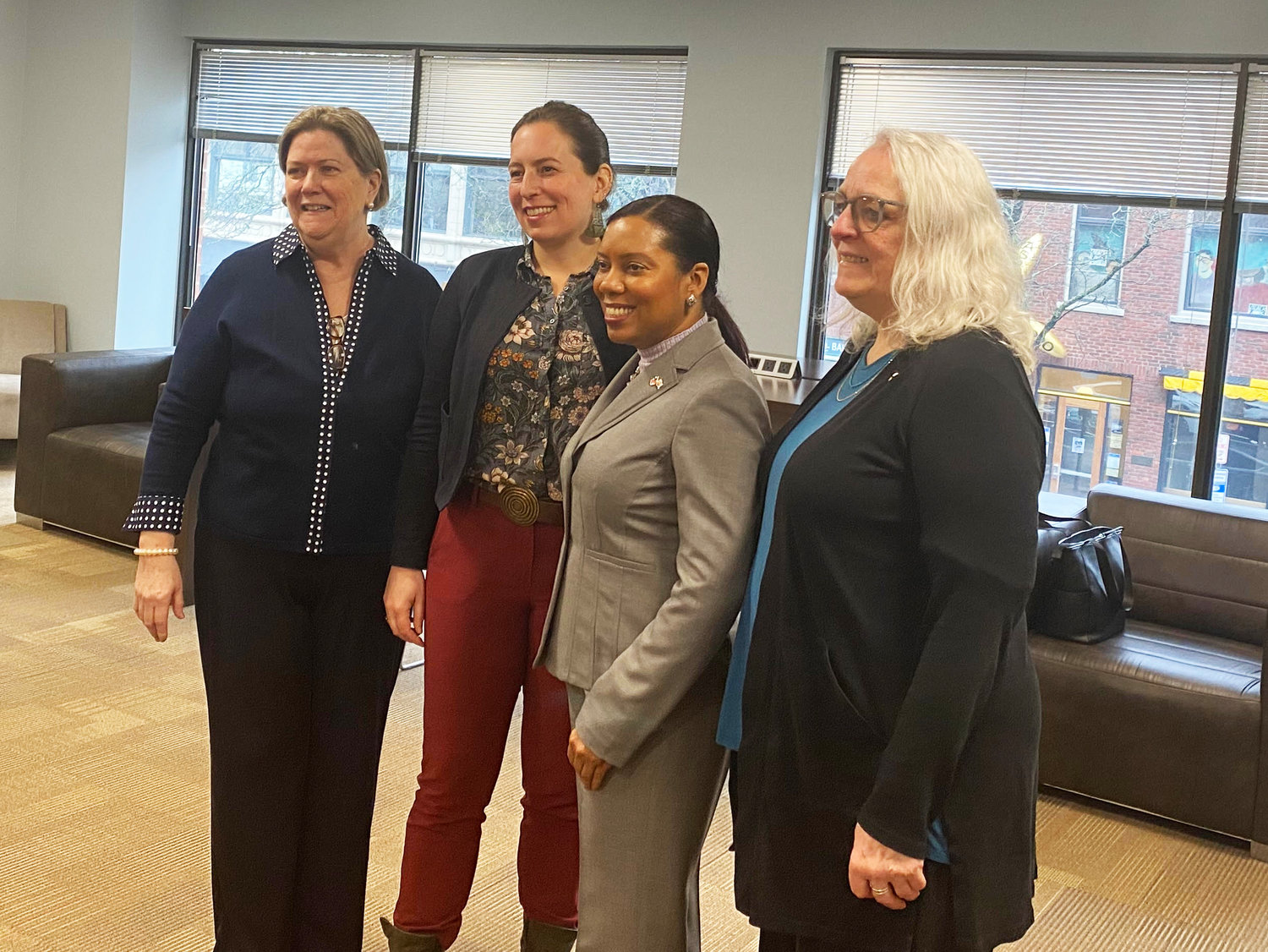Women at higher risk of housing insecurity
New research by HousingWorks RI captures a significant gender gap
For this week’s dinner table invitations, ConvergenceRI imagines a gathering of Barnaby Evans, the creator of WaterFire, Angela Ankoma, who directs the Equity Leadership Initiative at the RI Foundation, and Dr. Andrew Saal, chief medical officer at Providence Community Health Centers, to talk about the intersection of giving, community, and public health.
PROVIDENCE – Women may hold up more than half the sky. But, when it comes to the housing market in Rhode Island, the majority of women households suffer significant cost burdens, particularly in older age groups.
Those were some of the principal takeaways from the data-driven research conducted by Annette Bourne, Research and Policy Director at HousingWorks RI, presented at a gathering on Tuesday morning, March 28, at Roger Williams University.
Bourne’s research findings, contained in “Women and Housing: A Rhode Island Snapshot,” presented in a one-page infographic, provided an insightful look at the demographics by gender and age on the ongoing housing crisis in the state – a perspective all too often missing from the current discussion of the housing market.
• The majority of women households – 64,165 – are renters, and 58 percent of those households pay more than 30 percent of their income on housing costs, what is considered housing-cost burdened. Thirty percent actually pay more than 50 percent of their income on housing costs – making them severely cost burdened.
• Of the 52,422 Rhode Island households living below the poverty line, 53 percent are female households, more than double that of male households [25 percent] and couples [22 percent].
The research also documented a widening gap as Rhode Islanders age, including among single-person households.
• Of Rhode Islanders 85 and older, 68 percent of them are women; and of women aged 50 and older, 71 percent of them live alone.
Translated, women are at a higher risk of housing insecurity.
The questions that need to be answered include: What impact does this have on our local economies? And how will the growing gender gap related to affordability affect the future well being of Rhode Island residents?
Call and response
More than 50 people attended the session, including reporters Alexa Gagosz of The Boston Globe and Steve Ahlquist of Uprise RI, as well as ConvergenceRI. A panel of prominent women elected officials – Lt. Gov. Sabina Matos, State Sen. Meghan E. Kallman, and State Rep. June Speakman, [who chairs the study commission on the Rhode Island Low and Moderate Income Housing Act] – offered their responses to the research, sharing their proposed legislative fixes for the current housing crisis as well as stories about the situations being faced by their constituents. The response panel was moderated by Brenda Clement, director of HousingWorks RI.
Among the topics of conversations raised were the apparent failure of the private market to make the investments necessary to spur more housing creation, the difficulties related to poor transit options connecting housing opportunities and jobs, the housing limitations imposed by the demands of caring for both children and aging parents, and the age-related barriers faced by aging Rhode Islanders.






